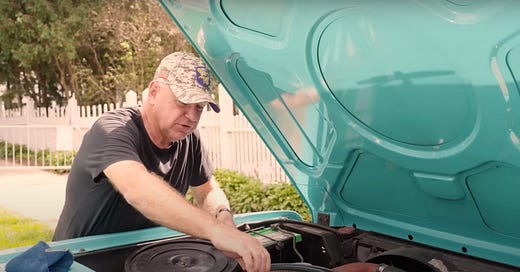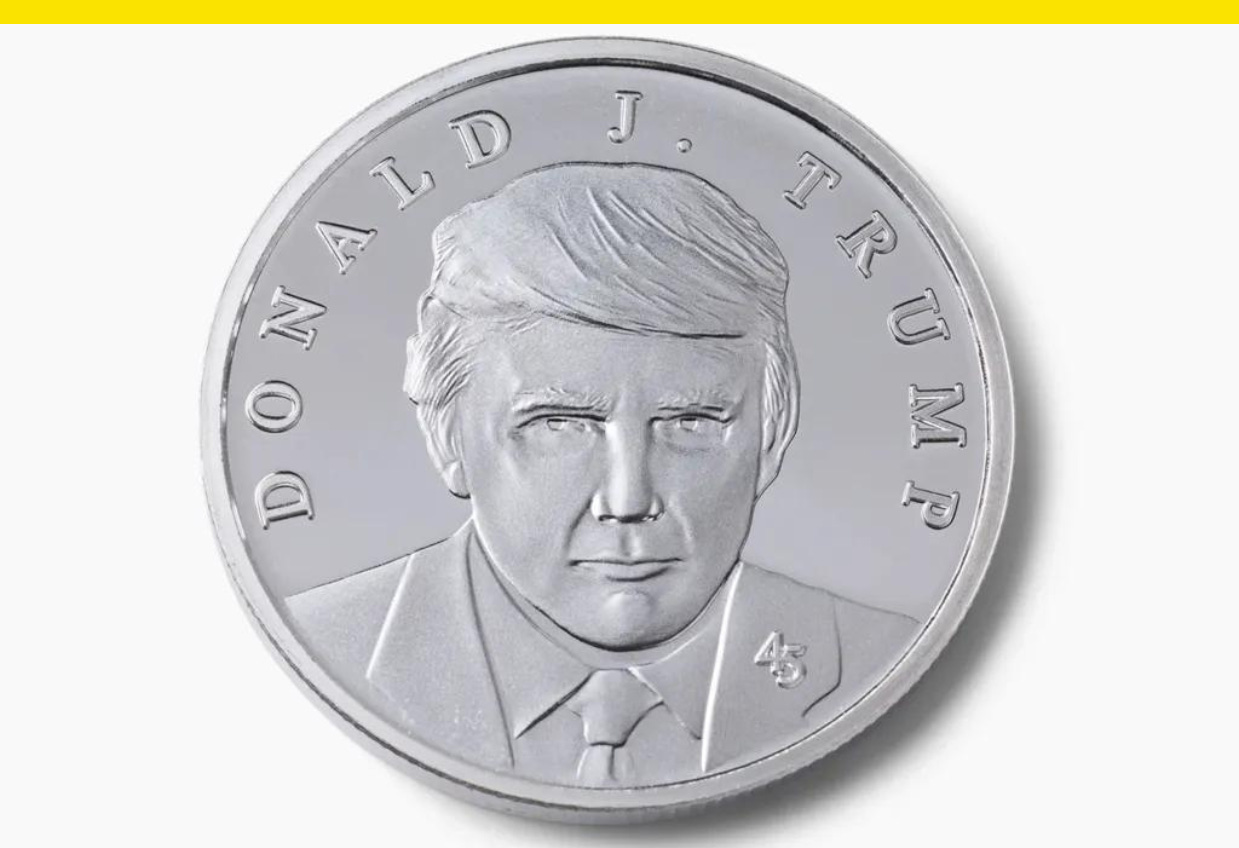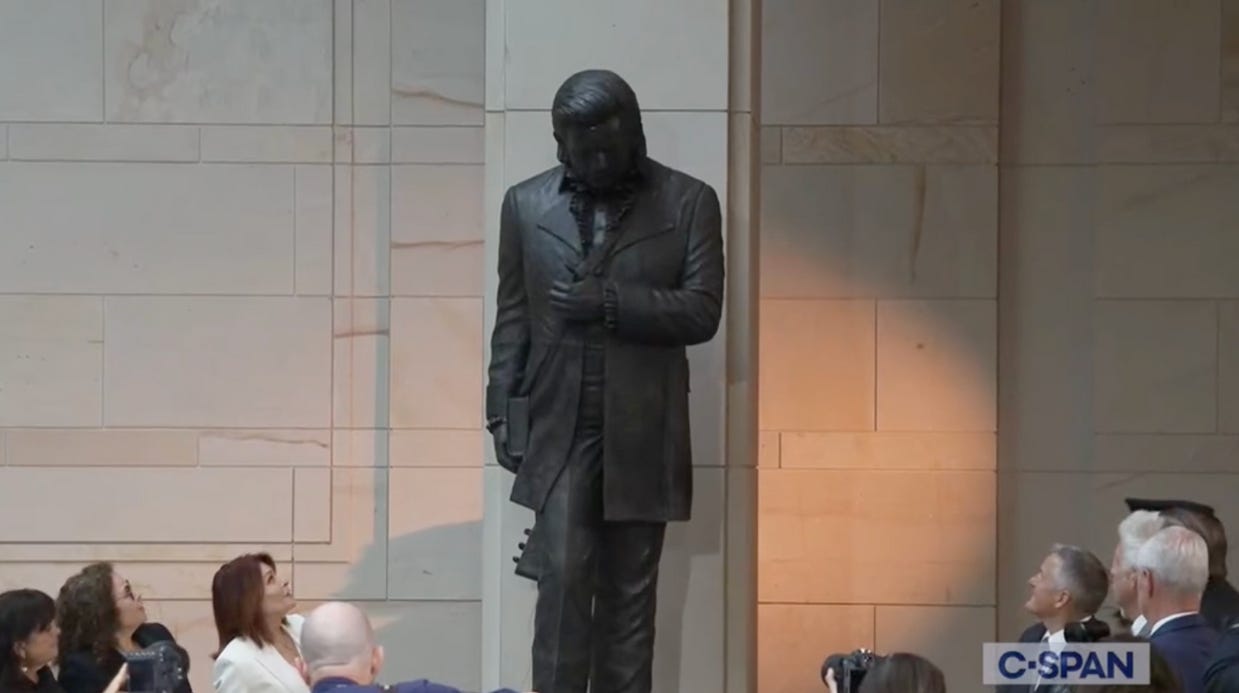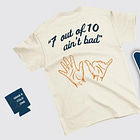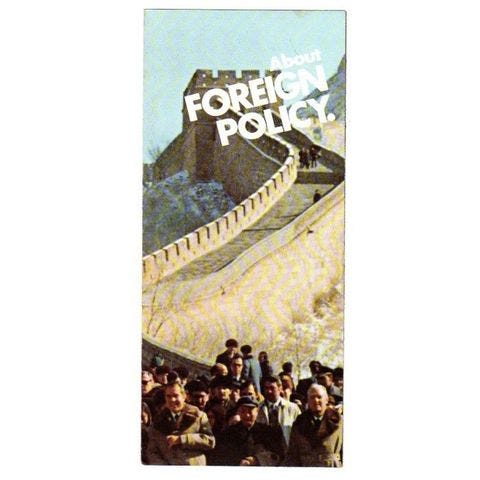The strategy to win over men for Harris
Plus: We’ve never had anything quite like Trump’s non-political branded merch
Hello, in this issue we’ll look at…
The strategy to win over men for Harris
We’ve never had anything quite like Trump’s non-political branded merch
Scroll to the end to see: the musician being honored with a statute from Arkansas in the U.S. Capitol 🎸
The strategy to win over men for Harris
The presidential campaigns are working hard to win over male voters. Vice President Kamala Harris said in a recent interview that she needs to “earn the vote” of Black men. And former president Donald Trump is hitting up the podcast circuit to reach young male audiences. Now, a brotastic new ad from the voter group White Dudes for Harris offers some insight into how some men are messaging their own gender.
The ad makes the case for voting for Harris using language you might hear from a right-wing podcast host. “Hey, white dudes,” the narrator opens over an electronic beat. “I think we’re all pretty sick of hearing how much we suck.” White men get a bad rap, the narrator continues, which he blames on guys like Trump and his “MAGA buddies,” who are “shouting nonsense in their stupid red hats and acting like they speak for us when they don’t.”
The ad is part of a $10 million buy in the swing states of Michigan, Pennsylvania, and Wisconsin, and while it might seem heavy-handed and full of gender tropes—like the political version of an unnecessarily gendered product of, say, Dude Wipes—it does show how important male voters will be in deciding the election.
A strong showing with male voters was key to President Joe Biden’s victory in 2020. Black men voted for Biden by a 75-point margin, and Biden cut Trump’s margin among white men down to 17 points from the 30-point margin Trump won by in 2016, Pew Research Center data shows.
While Harris leads Trump among female voters 58% to 37%, according to a national poll recently released by NBC News, she trails among male voters at 40% to Trump’s 52%. Hence, the imperative to woo male voters. As pro-Trump influencers behind the voter turnout initiative Send the Vote are working to grow Trump’s lead among men, the Harris campaign is doing its own messaging, albeit in less-conspicuous ways than White Dudes for Harris.
Harris’s male running mate, Minnesota Gov. Tim Walz, filmed a recent video working on his 1979 International Harvester Scout. Titled “The Manual with Tim Walz,” the video is like a political ad disguised as a Car Talk episode. Walz compares reading a car’s manual, to learn how it works, to reading Project 2025 to learn what former president Donald Trump’s allies and former advisors have planned for a second term. Notably, the video is filmed in a traditionally masculine setting to highlight Walz’s handiwork with a car engine. The video ends in a very dad way, showing the would-be vice president getting in the passenger seat to let his daughter take a turn at the wheel.
In another video put out by the campaign, Walz talks to a group of young men. In the video, the former high school coach—an identity the campaign is eager to play up—sounds like he’s speaking to a team at halftime. “Go get ’em,” he says. “Talk to your friends. Some of them are going to say, ‘Look, I’m not that into politics.’ The answer to that is: Too damn bad, politics is into you. So get engaged, go vote.”
One member of the group tells Walz that two of their buddies who were previously undecided have since decided to vote Harris-Walz. It’s a reminder that you don’t always need a podcast mic to speak to and win over male voters.
We’ve never had anything quite like Trump’s non-political branded merch
Trump can add a new line to his resumé: commemorative coin designer.
The former president is listed as the designer of the Trump Coin, his newest branded side hustle. The coin is made from 99.9% fine silver and shows an image of Trump on the front, with an image of the White House, a U.S. flag, Trump’s signature, and the phrase “In God We Trust” on the back.
The coin is the latest example of Trump’s growing list of direct-to-consumer products. Like his Bibles, sneakers, and NFT trading cards, Trump licensed his name and likeness to an outside company to manufacture and sell them. The coins retail for $100, and none of the money goes to Trump’s campaign.
It’s a business strategy we see from Kardashian-Jenner family members but not something we expect from former presidents. Though selling branded tchotchkes has become a normal part of modern-day presidential campaigns, it’s done to raise money for the campaign from small-dollar donors, not as a personal revenue stream for the candidate. Trump’s ongoing business ventures are unusual.
Running for president is expensive, but so is defending yourself from prosecution and fines related to trying to overturn an election, taking classified government documents, tax fraud, and more. Though he’s running ads specifically not asking for money, the truth is Trump needs cash.
Trump spent more than $100 million on legal fees between 2021 and March 2024, the New York Times found, and it was paid for through political action committees, a legal gray area. Trump also has liabilities of more than $100 million related to cases, including a civil case with writer E. Jean Carroll, who Trump was ordered to pay damages to for sexual abuse and defamation.
Though the fine print on web pages for Trump’s portfolio of physical and digital products explicitly say they don’t raise money for his campaign, Trump’s choice of products do happen to parallel some of the demographic groups his campaign is trying to reach. His Bible with singer Lee Greenwood is aimed at his evangelical Christian supporters while the sneakers and NFTs are an attempt to reach young men. The Trump Coin also seems targeted to a portion of Trump’s base. Commemorative coins have long been advertised on conservative media, and now Trump’s cashing in on the product category himself.
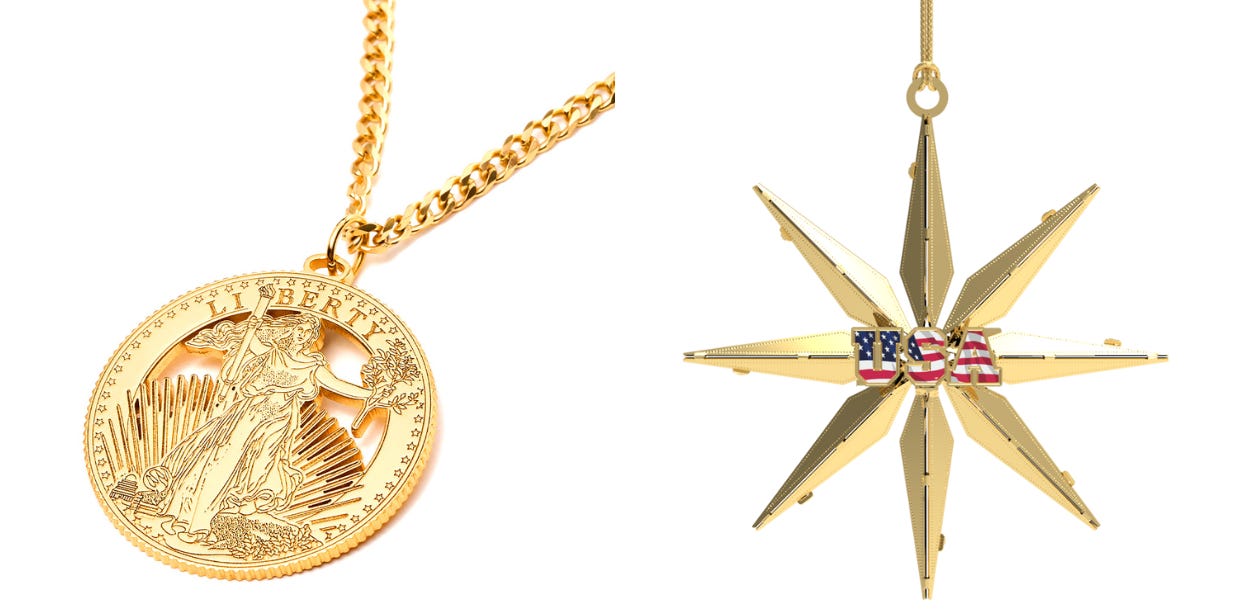
The closest equivalent to Trump’s business practices among other politicians is the presidential memoir, and Trump does bring in millions from the sale of his coffee table books, like Letters to Trump, which made him $4.5 million, financial records show. But Trump’s new product categories have proven even more lucrative. Those same financial records say he made $7.2 million from his NFT licensing deal. Former first lady Melania Trump has similarly made money from physical and digital direct-to-consumer products like NFTs, and her latest offerings, a $600 “Vote Freedom” pendant and $90 Christmas ornament.
Though Trump has found new ways to make money, that hasn’t translated to a competitive political fundraising operation. In the month of August, the Harris campaign raised $189 million, more than four times the $44 million Trump’s campaign raised in the same time period, according to the latest Federal Election Commission filings.
Trump’s new revenue streams have divided his attention, and it seems to have come at a cost to his campaign.
Have you seen this?
Trump holding far fewer rallies than in past runs. Trump held 72 rallies between June and September of 2016. He's held 24 in that period this year, with another on the calendar. [Axios]
Brands push for apolitical influencers to avoid “backlash” as U.S. presidential election looms. As the U.S. election season looms this year, brands are more adamant than ever about working with apolitical influencers to ensure brand safety.“This is actually the first time that I’ve seen some brands double down as much as they have.” [Digiday]
Monument to Johnny Cash is unveiled at the U.S. Capitol. The Cash statue and another statue depicting civil rights leader Daisy Bates, who mentored the nine Black children who desegregated Little Rock Central High School in 1957, were sent by Arkansas to the U.S. Capitol after Arkansas lawmakers debated competing statue ideas ranging from Walmart founder Sam Walton to a Navy SEAL from the state who was killed in Afghanistan. [ABC News]
Donald Trump’s campaign ran ads in the state of Georgia showing a beautiful landscape from... the country of Georgia. The image used in the ad can be found on Shutterstock captioned: “Cloudy morning view of the mountain hill in Upper Svanetia, Georgia, Europe.” [HuffPost]
History of political design
Nixon campaign brochure (1972). Richard Nixon’s reelection campaign released brochures that covered topics including foreign policy, the environment, education, drugs, health care, Vietnam, crime, and economic leadership. Click through to see more.
A portion of this newsletter was first published in Fast Company.
Like what you see? Subscribe for more:
Politics in the front, pop culture in the back.
Subscribe to my new newsletter Whig:

